A squirrel may look cute and cuddly in the garden, but only from a distance. Once squirrels begin to enter your yard, digging around and eating the seeds of your plants or birdseed, they become less valuable and more insects. Squirrels can look cute in the garden as long as they do not damage or destroy the plants you are raising.
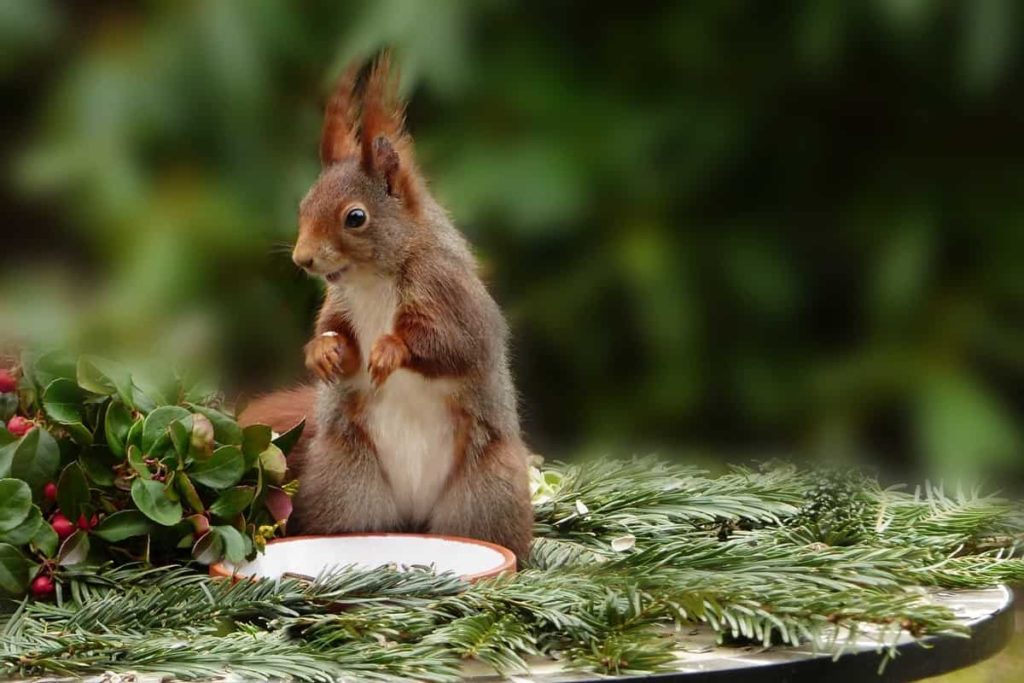
Curious squirrels can destroy bird feeders or eat all the seeds that are for your feathered friends. Squirrels also dig into flower beds and plant pots and chew on any plants they think may be tasty. Let’s check out How to keep squirrels out of your garden.
Why are squirrels attracted to gardens?
Squirrels love food and will consider almost everything in the garden. They are notorious for loving acorns, but not squirrel-picking rodents – little critters will eat vegetables in your vegetable garden, flowers, flower bulbs, and any birdseed you may have on your lawn, yard, or garden. Even things like household trash can attract squirrels to your property.
Ways to recognize squirrel damage in the garden
Find out when squirrels are in your garden and identify squirrel damage before deciding to take action. Here are some signs of squirrels in your garden.
Absent crops
If crops are constantly disappearing from your plants, chances are good that a squirrel will come to them before you have time to harvest. It can be common with Tomatoes, Cucumbers, Berries, Lettuce, and others. Once you feel the sting on any of the leaves or crops, it’s still time to implement the repellent.
In case you miss this: Cheap DIY Garden Ideas
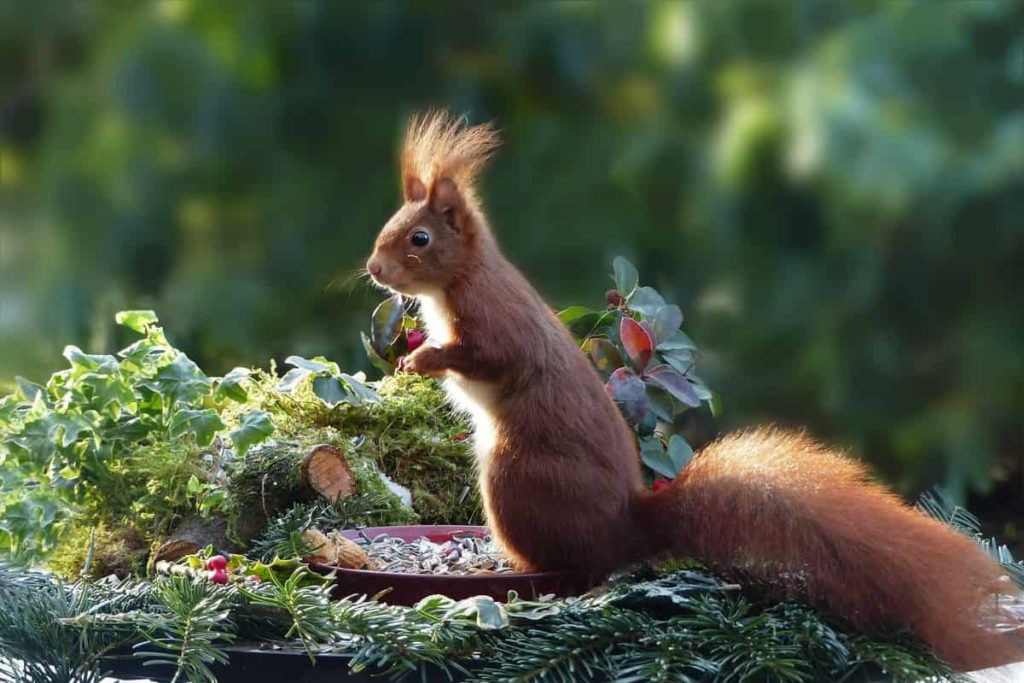
Damage to the bulbs
Squirrels’ food sources come from nature, and they do not know the difference between food falling from trees and food grown by homeowners in the garden. The squirrels will dig up the bulbs planted in the spring or autumn – not only to eat but also to make hiding places for other food they have collected.
Missing bird food
Squirrels are rodent scavengers. They look for any possible food source, including seeds in a bird feeder. Squirrels love sunflower seeds, which are common in bird food. Not only will squirrels eat what falls to the ground, but they will also climb on something to feed on the original bird’s feeder. Squirrels will not only attack your gardens but also your bird feeders.
If you find that your bird food is rapidly disappearing, you may have a squirrel problem. If you are growing flowers or vegetables in containers, you may also notice that someone is digging into the soil in the container. Squirrels and chipmunks are known to search for insects or other objects in containers, and in the process can uproot plants.
Disruption of soil or mulch
Squirrels like to dig mud and mulch in garden beds and pots, so if you see it in your garden, it is a possible sign of squirrel infestation. Protect the roots and apply one of the many natural ways to repel squirrels.
How to keep squirrels out of your garden
Squirrels can do a lot of damage to plant pots and gardens, and many of you will have experienced squirrel movements such as knocking on pots, eating bulbs, plants and flowers. Keeping squirrels out of the garden is a challenge, but these ideas should help.
Hot pepper plants and red peppers
Hot peppers seem to be the most widely used ingredient in natural squirrel treatments and you can use them in many ways;
- Sprinkle crushed red pepper flakes on the ground near the plants that appear to attract squirrels.
- Sprinkle a light dusting of Cayenne Pepper on the leaves of squirrel tempting plants. The fallen leaves are the most important for sprinkling.
- Mix Cayenne Pepper and petroleum jelly and spread it on the base of plant stems. Spread it near fences, poles, and other solid objects near plants that look like squirrels.
- Make a Cayenne Pepper spray and spray it on the leaves of tempting plants. To do this, mix a small bottle of your favorite hot sauce in a gallon of water. After that, place it in a spray bottle. Then, use it directly on the plant leaves that the squirrels are going after.
In case you miss this: Plant Care Tips, Ideas, and Techniques
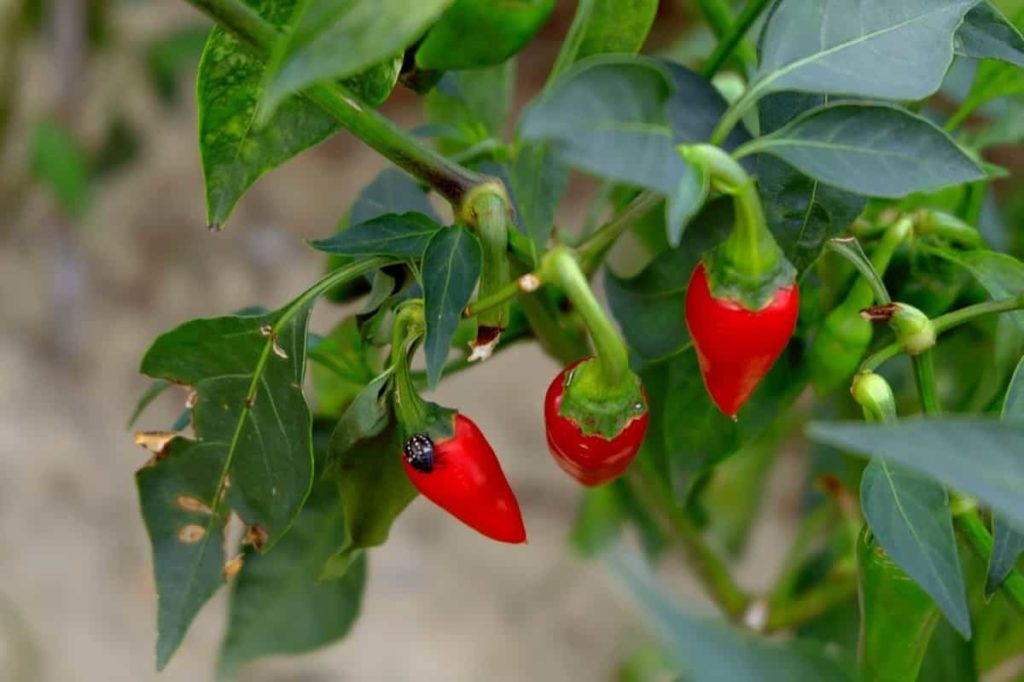
Garlic spray
Squirrels dislike the smell and taste of Garlic. Make a mixture of chopped Garlic, water, and vinegar. Leave the mixture for a few days to allow the flavors to combine well and sprinkle it on the fences and stakes in your vegetable garden.
Cover the gardens
Squirrel-proof gardens with row cover, bird netting, or chicken wire, or line the soil bottom with hardware cloth. All of these options will protect plants from squirrels while still allowing sunlight and easy watering.
Create a squirrel proof bird feeder
You can make a squirrel-proof bird feeder by switching out the feed. Squirrels love sunflower seeds but hate saffron seeds, meaning a switch would be helpful. Use a squirrel baffle (a special cone) to keep the squirrels out of the bird feeder, as a circle creates an obstacle through which the squirrel can’t get past.
Build a Greenhouse
If you have the money, installing a greenhouse can be a worthwhile endeavor. Grow edible plants like strawberries in a greenhouse where squirrels cannot reach them.
In case you miss this: Top 30 Vegetables To Grow In A Greenhouse
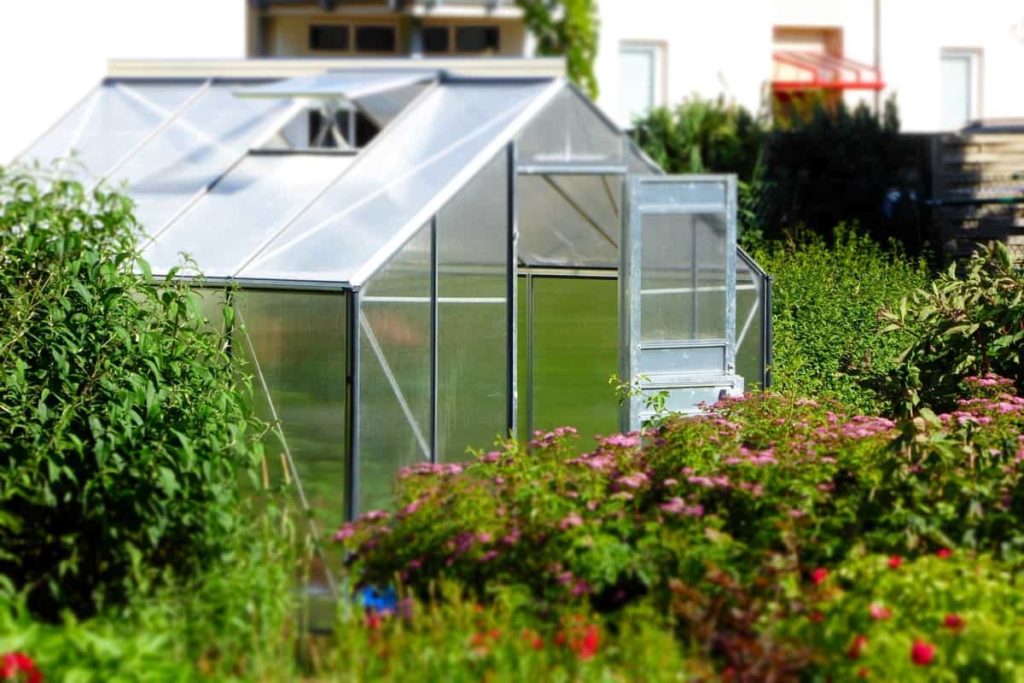
Squirrel decoys, the noisemakers, and sprinklers
Motion-activated sprinkler systems are available and can detect everything from squirrels to deer, eliminating the need for chemical interventions or adding physical barriers such as fences. Fierce resin owls and creepy black rubber snakes are seen inhabiting the garden aisle every spring, and promise gardeners to scare the squirrels with their wits.
Faux predators may have some limited effects, but you should provide animation by moving their shortcomings every day. Ultrasonic noise generators and motion sensor sprinklers can trigger squirrels, but their effectiveness decreases rapidly over time. As urban animals, squirrels are adapted to live with all kinds of noise and other stimuli.
Get a dog
Most dogs like to chase squirrels. Keep them on squirrel patrol and let them scare the squirrels away.
Cover the ground
Squirrels don’t particularly like the feeling of mulch (especially gravel) under their feet, so add it to garden beds. When used on newly planted bulbs, it can also help mask the scent of fresh bulbs. You can also try inserting aluminum foil.
Remove food sources
If you want to prevent squirrels from entering your property, you need to understand why they like to roam there first. More often than not, it is caused by food. In the wild, squirrels eat mostly plant material. But in reality, these little critters can eat anything and everything. Squirrel problems can start with skipping pet food, installing easily accessible bird feeders, planting fruit trees, or failing to store trash bags.
So, before you start installing squirrel fence spikes or buying gallons of squirrel poison, know that the best way to get rid of squirrels is not to apply anything they hate. Yes, you have to snatch what you like. Avoid leaving your pet’s food bowl outside. Put a squirrel guard on the pole holding your bird feeder, otherwise buy a squirrel-free zone. Set up a tent safety net over your fruit trees and protect your vegetable garden with hardware cloth or chicken wire.
Remove fallen fruit or bird food from your yard. Put your trash in a strong trash can with a lockable lid. Eliminating food sources should be your first step in the squirrel control war strategy. Without doing so, you significantly reduce the chances of your squirrel’s methods of controlling other pests succeeding.
A strong smell is a great way to repel squirrels – certain odors make squirrels wrinkle their noses. They are said to dislike the smell of Coffee grounds and peppermint, or you can make your own with vinegar, Garlic, Onion, or Peppermint oil to spray in the garden. Chilli flakes and peppers might put them off, so try spraying them. When it comes to planting on your borders, consider the scented plants that squirrels dislike, such as the fragrant onion members of the allium family, the highly fragrant hyacinths, and the lilies of the valley.
Plant mint
Mint occupying your yard can be useful after all: Squirrels avoid the strong smell of peppermint plants. Try to put mint pots on the edges of your vegetable garden to keep thieves away.
In case you miss this: Mint Growing Tips, Techniques, Ideas, and Secrets
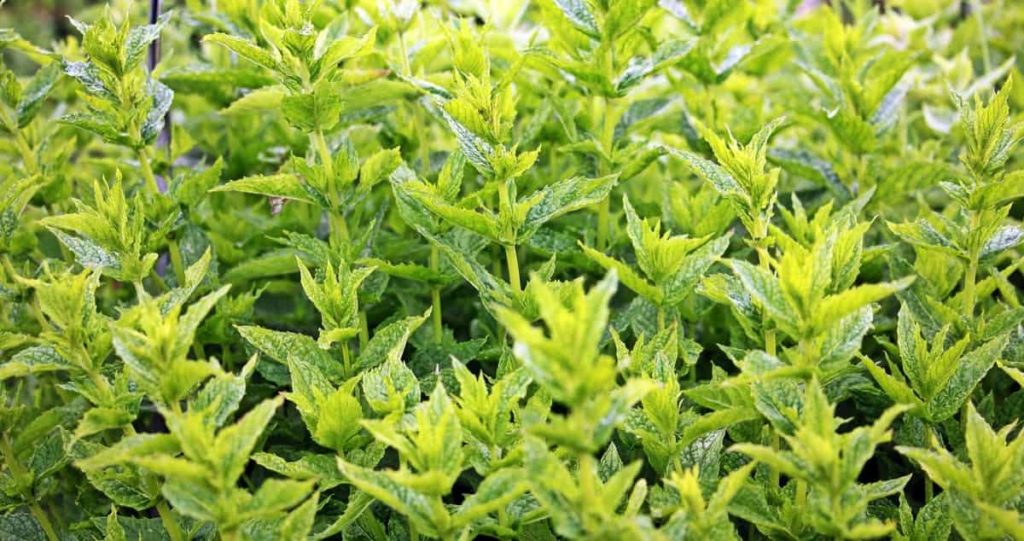
How to protect container plants from squirrels
Think about the creatures that are collecting a bank of nuts that they can get when they are hungry. Always looking for a safe place to hide their nuts, they spy on a container and discover that it is already ready with good, soft compost. Even better than their point of view, they can see some prize bulbs, just right for a tasty snack.
To prevent them from digging, arrange large pebbles around the topsoil, which has the advantage of preventing moisture from evaporating from the pot, so you will also need to give less water.
In case you miss this: House Plants Care, Tips, Ideas, and Techniques
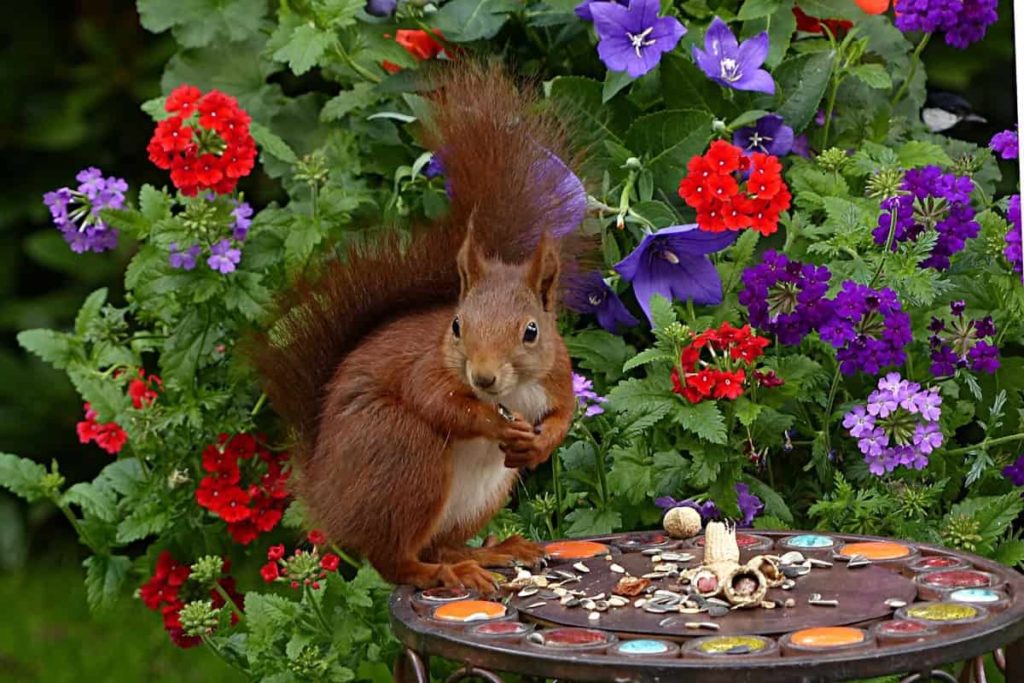
Squirrel repellent plants
A few ideas for squirrel repellent bulbs are Daffodils, Hyacinths, Allium, Lily of the Valley, Peppermint, and Geranium. Tulips, Crocuses, and Geranium attract squirrels, so avoid planting them.
- Flower Garden Designs and Layouts for Beginners
- Planting and Spacing Techniques in Papaya: A Beginner’s Guide
- Growing Gold: Essential Techniques for Planting Pineapples
- How to Make Kalanchoe Plant Bushy: Home Remedies and Solutions
- 11 Reasons Why Your Gardenia is Not Blooming: Home Remedies and Solutions
- Eco Elegance: The Guide to Designing a Drought-Tolerant Landscape
- Gardening on a Slope: Strategies for Hillside Landscaping
- Nourish and Flourish: Top Organic Mulches for Thriving House Plants
- Everything You Want to Know about Indian Mogra Flower: Discover Uses and Growing
- Green Thumb Success: Expert Tips for Cultivating Greenhouse Pumpkins All Year Round
- Maximize Growth & Flavor: The Ultimate Guide to Companion Planting in Herb Gardens
- How to Control Rhododendron Problems Naturally: Home Remedies and Organic Ways to Fix Them
- Natural Magic: The Remarkable Benefits of Cinnamon for Plants
- Best Steps to Revive Dying Tulip with Natural and Organic Treatment
- 10 Reasons Why Your Angel Trumpet is Not Blooming: Remedies and Treatment
- How to Fix Periwinkle Leaf and Flower-Related Problems: Natural Remedies and Solutions
- How to Fix Zinnias Leaf and Flower Problems: Discover Natural and Home Remedies
- Organic Steps to Induce Lemon Tree Flowers: A Comprehensive Guide
- Bloom Booster: Crafting the Perfect Homemade Bougainvillea Fertilizer
- Optimizing Growth: A Guide to Applying NPK Fertilizer for Potted Plants
- 10 Best Homemade Fertilizers for Rubber Plant: DIY Recipes and Application Method
- How to Boost Female Pumpkin Flowers: Effective Steps for More Flowers and High Yields
- Transform Your Indoor Garden: Top Benefits of Pink Salt for Houseplants
- 10 Best Homemade Fertilizers for Peacock Plants (Calathea): Easy DIY Guide
- Unlock Blooms: 9 Reasons Why Your Potted Chrysanthemum is Not Blooming
- 8 Reasons Why Your Potted Hibiscus is Not Blooming: Fix it with Simple Solutions
- Unlock Blooms: 9 Key Reasons Your Potted Frangipani Won’t Flower
- 10 Reasons Why Is My Ice Plant Not Blooming: Remedies and Treatment
- 10 Reasons Why My Potted Hydrangea Not Blooming: Treatment and Remedies
- 10 Reasons Why is My Wisteria Not Blooming: Remedies and Treatment
- 10 Reasons Why is My Goldfish Plant Not Blooming: Remedies and Treatment
- Maximize Your Space: Ultimate Guide to Balcony Gardening with Grow Bags
- 10 Reasons Why Your Iris is Not Blooming: Remedies and Treatment
- 10 Reasons Why Your Anthurium Plant is Not Blooming: Treatment and Remedies
- 10 Reasons Why Your Aquaponic Plants Are Not Flowering: Remedies and Treatment
- 10 Reasons Why Your Agapanthus is Not Flowering: Remedies and Treatment